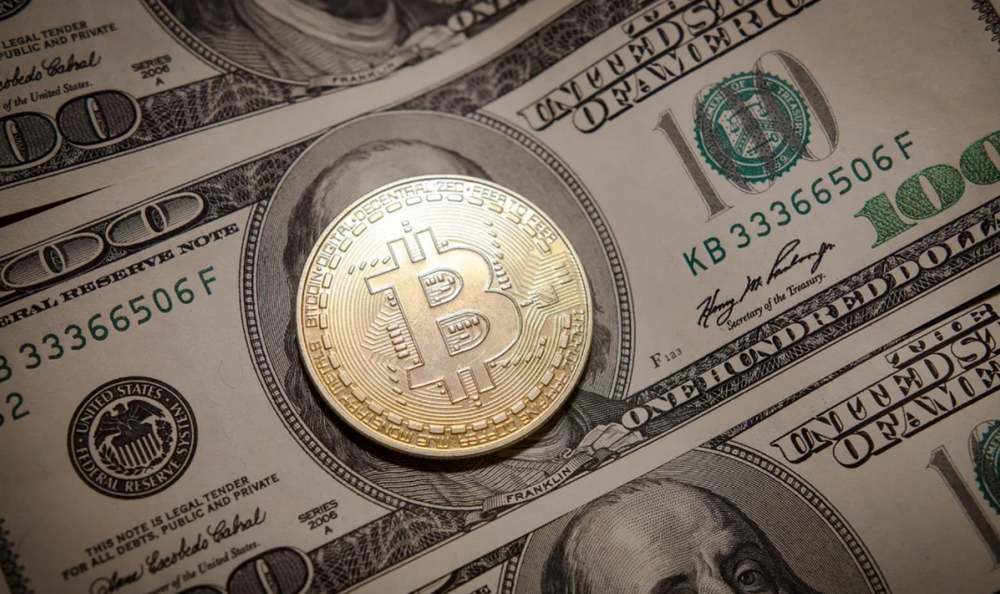The United States has issued a series of new data privacy regulations. Will this new wave affect the blockchain?
Source: Hackernoon
Translation: First.VIP_Saline
Editor's Note: Will the new wave of data privacy regulations affect fintech? 》
California recently introduced a series of new privacy regulations similar to the GDPR, which is considered to be the start of a new wave of regulations that will be introduced in all states of the United States.
- Financial OneAccount is 40% off for listing in the US, is the second share of the blockchain worth looking forward to?
- Listen to the Filecoin team respond to the core questions you need to know about testing online
- Observation | 5 pictures depicting the Web3 stack in 2019

However, the Internet is the real game-changer. It was 10 years ago that it spawned cryptocurrency (Bitcoin was the first cryptocurrency), and has promoted the normalization of online banking in the past 20 years. Take a look at these statistics to understand. In 2017, 93% of enterprises used cloud services. In 2018, the global cryptocurrency market size reached 700 billion U.S. dollars. Today, 69% of global banks are experimenting with blockchain, and 30% of large financial institutions have used artificial intelligence this year. In today's foreign exchange market, FinTech plays a huge role in the automation of foreign exchange transactions, opening the door to foreign exchange transactions to new global markets that connect new traders and sophisticated investors. Among the current financial industries hit by fintech, consumer banking accounts for 72%, leading the way.
Banks and businesses have now realized that if they don't invest in technology-based solutions, they will be left behind. The global fintech market has just emerged, but will the fintech market be trampled upon its emergence due to a new round of global data privacy laws?
The EU's GDPR (General Data Protection Regulation) is a major start. The promulgation of the General Data Protection Regulation has brought about the most meaningful and influential changes to data regulation for more than 20 years. It affects not only how European companies operate, but also all companies or organizations that collect data on European citizens worldwide.
It fundamentally subverts the data processing methods so far, requires organizations and companies to obtain permission to collect Internet user data, enforces the transparency of the use of such data, and requires that such data be deleted if the user does not agree with the use. Until then, companies have been processing people's personal information as they please-their health data, consumption habits, personal information, and more. Until now, this information was visible to everyone.
Now, other countries are following suit. California recently introduced a series of new privacy regulations similar to the GDPR, which is considered to be the start of a new wave of regulations that will be introduced in all states of the United States.
But will these regulations have the expected impact? Or is the size of the tech giant (BigTech) so large that these privacy regulations simply cannot affect their strong growth trajectory? In Europe, it seems that even GDPR has not penetrated into the tech giants as privacy advocates hoped. Next month, we will know if Whatsapp's lack of transparency in the way users use personal data violates the GDPR.
According to GDPR regulations, Whatsapp may have to pay up to 4% of its annual income (this is not a small sum), but somehow the decision-making process was postponed to next year. Whatsapp has only filed a procedural lawsuit, delaying the case for months, and may be the first action by a tech giant to avoid the devastating impact of GDPR on the company's profitability. Google has been fined $ 57 million for violating GDPR provisions. So whatsapp will be next?
Strengthening the review of personal data processing will undoubtedly make fintech companies' operations more difficult. The attractiveness of fintech lies in its ease of use, but these new regulations clearly require companies to collect user personal data with user consent and clarify the purpose of collecting data. If the company wants to share user information with a third party, it also needs to obtain the user's consent.
This obviously makes all aspects of fintech more tedious and difficult to manage. Will the company's burden be too heavy? At this stage, financial opportunities for Fintech companies have far exceeded the efforts to comply with the new regulations, so I feel that the burden is not that heavy.
There are many aspects of FinTech that need to be worrying. Tech giants are making inroads into the banking industry, with Apple launching its own credit card, and Facebook has previously launched its digital payment system, Libra.
There are still risks in the network and supervision is still being strengthened. There are countless examples of this. Will enhanced data security be another potentially damaging risk? I think the answer in the reader's mind should be the same as mine. Reprinted please retain copyright information.
We will continue to update Blocking; if you have any questions or suggestions, please contact us!
Was this article helpful?
93 out of 132 found this helpful
Related articles
- Satoshi Shinmoto 丨 Why was Satoshi Nakamoto born on April 5, 1975?
- Swedish central bank partners with Accenture to launch e-krona e-krona pilot platform
- Yi Huanhuan, Dean of Beijing Mutual Gold Association Research Institute: "Blockchain + Finance" will come to fruition in 2020, and the blockchain will enter a new era of smart contracts
- Twitter CEO Jack has a dream: from electronic money to social networks
- Introduction to Blockchain | Filecoin launches testnet, is the age of IPFS coming?
- Vitalik Buterin: Persuading the Ethereum Foundation to sell $ 100 million ETH, and it is basically at the "highest point"
- Well-known institutions review 2019: the market recovers, but thanks to Bitcoin; Ethereum has not been killed





